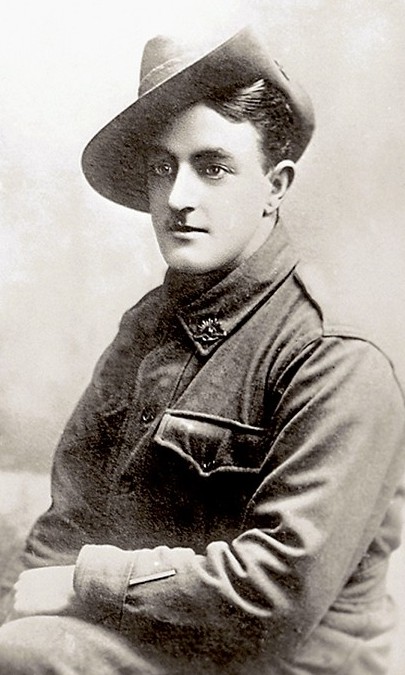
MONTAGUE Romeo was born in Hastings to Charles and Katherine (nee Howard) Romeo in 1894. He first enlisted in Hastings on 11th September, 1914 but was discharged on 5th October, 1914 as being “unlikely to become an efficient soldier.”
No reason was given in the official records for this assessment although his medical inspection noted “lower teeth deficient.” Moreover his height was only 5 feet 2 ¾ inches and in 1914 the army was seeking men of a minimum of 5 feet 8 inches. After several more unsuccessful attempts to enlist, Montague Romeo was finally accepted on 28th September, 1916. By this time he was 22, a driver and living in Hastings. He was still single and listed his father Charles as next–of–kin.
Private Romeo (Regimental No. 7073) embarked from Melbourne on the Hororata on 23rd November, 1916 with the 23rd Reinforcements of the 6th Battalion. After disembarking at Plymouth on 29th January, 1917 the reinforcements moved into training camp before proceeding to France in early May. On 25th May, 1917 Private Romeo was taken on strength with the 6th Battalion.
Within four months (on 20th September, 1917) Private Romeo was wounded in the Battle of Menin Road and was transferred to the Beaufort War Hospital in Bristol suffering from gunshot wounds to the left thigh and forearm. After his recovery Private Romeo was given some furlough in England before rejoining his battalion on 29th December. On 5th June, 1918 he was killed in action in Strazeele, France.
One of Private Romeo’s sisters must have written requesting a photograph of the grave. The first response, presumably typed by Private Dale on 31st December, 1918 (and not 1917), gives an account of Private Romeo’s death, but neither it nor the response by Private Bleasdale can shed any light on the grave site. Presumably there wasn’t one for Private Montague’s name is recorded on the Australian War Memorial at Villers Bretonneux which lists Australian soldiers with no known grave.
The family notices were placed in The Argus on 21st June, 1918 and the loss was recorded in the Mornington Standard on the following day:
“Hastings. Great regret was expressed on all sides when the news was received of the death in action of Private Romeo, who was well-known and highly esteemed here. Monty tried unsuccessfully to enlist on four occasions before he was accepted. He was previously wounded in France, invalided to England, but returned again to the firing line. For three years previous to the war he was employed by Mr. Cunningham of Frankston, and in that town also his quiet and unassuming manner and gentlemanly qualities made him a general favourite. Heartfelt sympathy is felt for his parents and relatives who reside here.”
In February the family received a parcel of private Romeo’s belongings and Katherine, the grieving mother, thanked Base Records for their kindness. One can only imagine the distress caused to the families when these parcels arrived.
During the following years his father Charles received the British War Medal and Victory Medal, the Memorial Scroll and finally, on 6th November, 1922, the Memorial Plaque.